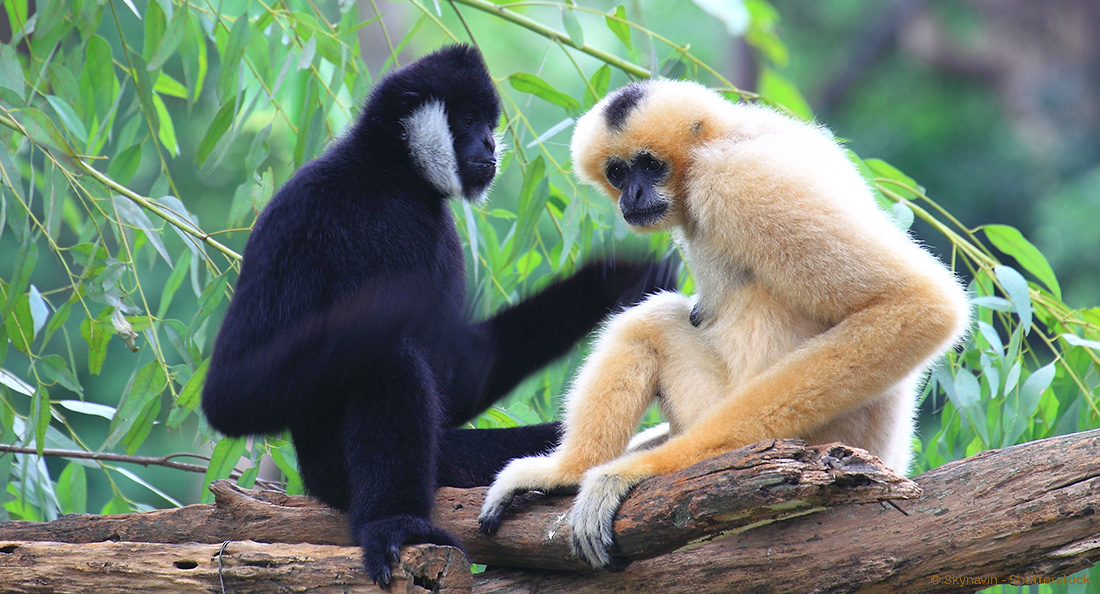The brachiation specialists!
Gibbons are the smallest of the “great apes”.
These very agile tree-climbers can walk in a bipedal manner (standing on their hind legs), but they really specialise in brachiation: they swing easily from branch to branch with their long arms!
The red-cheeked gibbon lives in a family group consisting of a breeding pair and in some cases a few babies and youngsters.
This species is also known for its distinctive song, performed as a duo. This complex and sophisticated song is used in particular to defend their territory: it can be heard over a kilometre away!
All species of gibbon are under threat, hunted for their meat and traditional medicine, and captured for the animal trade. An additional threat is the fragmentation and destruction of forests, caused by the expansion of agriculture and the timber industry.
A young couple of these gibbons has been present at La Barben since 2019. Will you be able to listen to their characteristic song, usually heard in the early morning?


